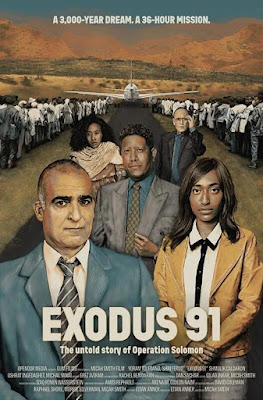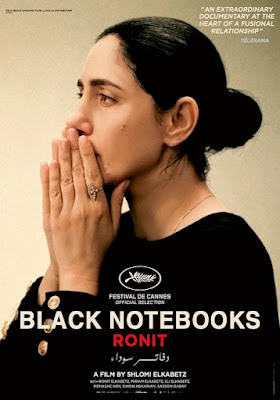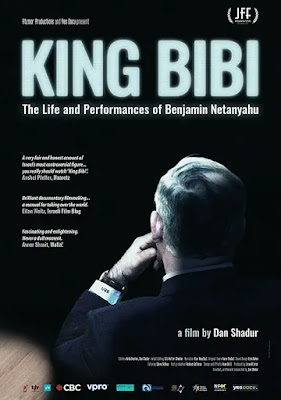During Adolf Eichmann's trial, Israel mandated that only Sephardic Jews could serve as his prison guards, because his victims were overwhelmingly Ashkenazi. Originally indigenous to the Middle East, North Africa, and the Mediterranean, anti-Semitic protestors regular deny the very existence of the Sephardic Jews. “Go back to Poland” is a hateful threat directed at Jewish students you often heard screamed on college campuses in recent weeks. Given the alarming rise in hate crimes targeting Jews, like last weekend’s violent attack on a Los Angeles synagogue, Jake Paltrow’s June Zero resonates differently than when it started its festival screenings. A young Sephardic boy experiences a unique vantage point on history in June Zero, which opens today in New York.
David Saada has mild klepto impulses, so his father decides to scare him straight with a part-time job in the factory owned and operated by Schlomi Zebco, a still-feared former anti-British Zionist revolutionary. Zebco does not owe his father anything, but he sees some possible use for the scrappy kid. He happens to have a big job coming in that will require small hands and an understanding of mechanics.
Zebco has been hired by the state to create a crematorium for Eichmann. They intend to cremate him, so his grave could not become a pilgrimage site for Ivy League faculty members. (They were really thinking of Nazi thugs, but here in 2024, they are largely one and the same). In a supreme irony, they provie vintage schematics from Topf and Sons, the German engineering firm that had a lion’s share of the concentration camp contracts and was later nationalized by the East German Communist regime.
The job came to Zebco through an old crony, Haim Gori, a Moroccan Israeli overseeing Eichmann’s prison detail. Despite being Sephardic, Gori is horrified by his prisoner, but also mindful of his responsibility. Frankly, the section focusing on Gori bears some similarity to horror films, because the unseen Eichmann seems to disturb his jailers in ways comparable to a Hannibal Lecter or Michael Meyers. Yet, Paltrow never shows the monster directly, using clever framing akin to that of Michael Jordan in Air, to prevent humanizing him to any extent. Instead, he is pure bogeyman.
The intertwined narrative strand focuses on Micha Aaronson, a member of the prosecution, who is now giving a guided tour of the Warsaw Ghetto, where he barely a savage flogging. There seems to be a mutual attraction percolating between him and Ada from the local consulate, but they also have very different perspectives on Israel should express its collective memories of the Holocaust.
This is an important segment, because it reminds viewers Israelis are not monolithic. They debate and disagree, just like other nations. However, it is also important for viewers to remember, with their post-10/7 hindsight, all Jews (Israeli or not) will be treated alike by Jew-hating terrorists, who happily murdered Israeli peace-activists at Be-eri.
Indeed, there are powerful scenes in each section of June Zero (a reference to the tabloid that opted not to date its Eichmann execution issue). Weirdly, the film might have been even more successful if it was a more sharply defined triptych, with characters only crossing over to maintain a sense of continuity.






























